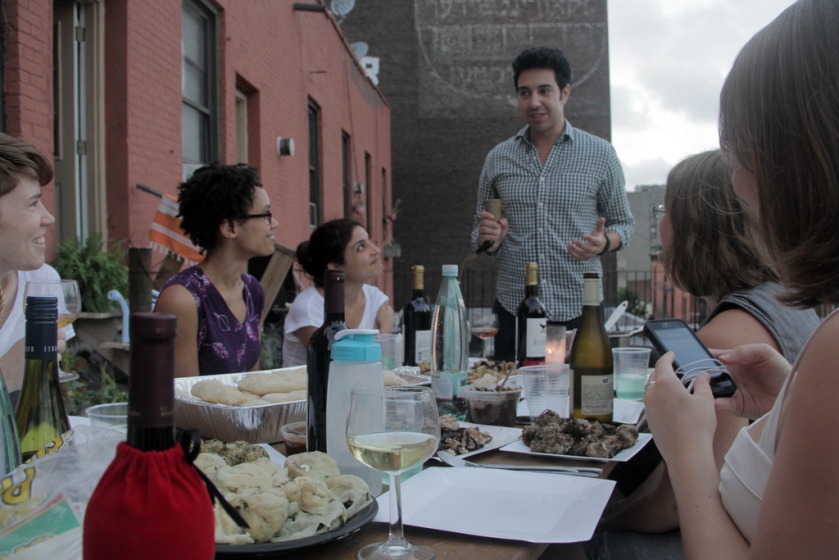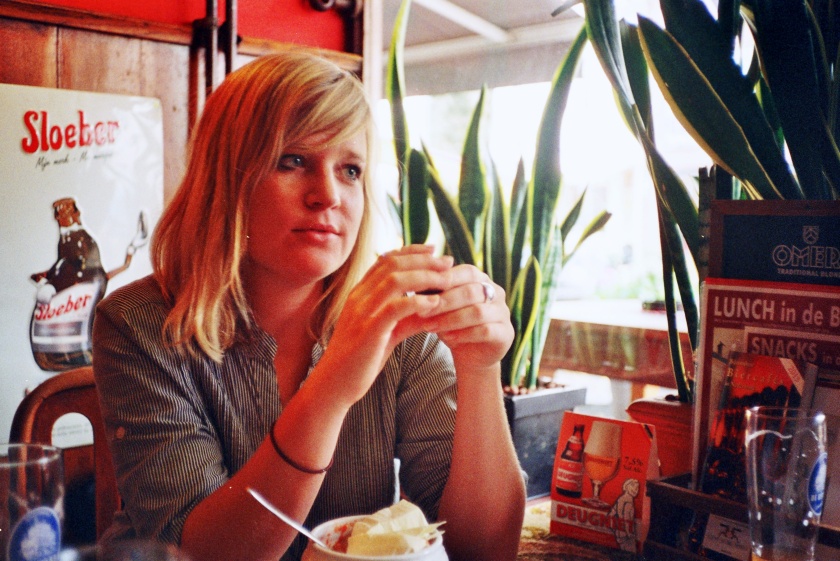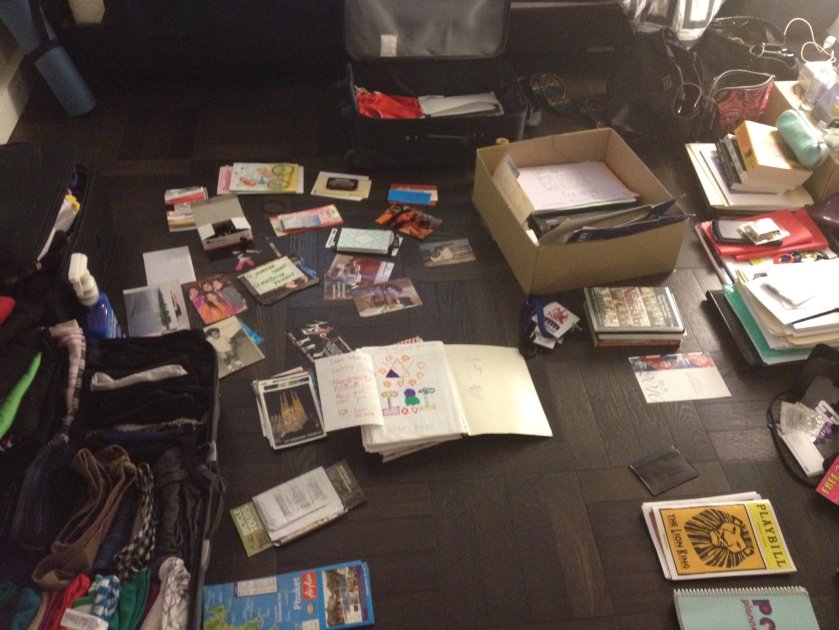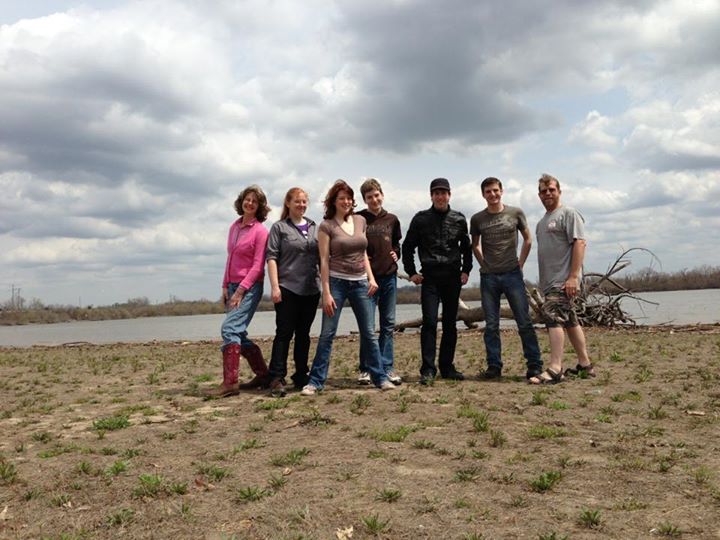His name was Bill, and he rode a bicycle. It was an old cruiser that looked carefully oiled and at the same time well worn. Bill didn’t look old enough to be scared of riding a bike, but he did look old enough to be seriously injured if he fell from it so I guessed he was around 65 years old. His creamy white hair was carefully combed to the side, and he wore dress pants and brown shoes.
While I stood swinging on and off my tiptoes, scanning the corner right before the hollow of trees over the railroad track, he leaned on his bicycle over the platform with a quiet, patient smile on his face. I remember glancing down at his strong, veined hands and thinking that those could be violinist’s hands: I could tell because they looked like they were capable of delicate, gentle motions in spite of being big and rough.
“Hello,” I said, meaning to be polite.
So far into my summer in the United States, if I had learned one thing it was that Americans, especially Southerners, had made an art out of being polite.
“Waiting for the train?” he said.
He almost stole those words right out of my mouth: I had intended to ask him the same thing; firstly because that particular week, was my Week with A Special Emphasis on not Appearing Stuck Up.
I loved people. At least I thought I did, until earlier that week when my cousin — whose house we had been guests at for most of the past month–did something very characteristic of herself: she told me the truth, plainly, almost wickedly.
“Why do you insist on acting like you’re better than anyone else?”
Her words didn’t make sense to me at first: so my mind quickly dismantled the sentence and two words kept ringing in my head: “better?” and “else?”
When I recovered myself enough to ask her what she was talking about, she was not able to give me a clear example of what exactly I had done to make her believe that about me.
“Well, I don’t know, something about you seems like you feel that way,” she shrugged and said.
It was true. It was all too true, all the things she hadn’t said to me I felt around my chest and I had to go to the bathroom to let them out in tears. Earlier that summer my family and I packed up our lives into fifty-odd boxes and moved across the Atlantic to look for a job and start life in another country.
No big deal, we had done it before, actually, several times. The lack of stability and insecurity that we were all experiencing wasn’t what I was struggling with that summer: I was used to that. I wasn’t even grieving the loss of my friends so much. My biggest problem that summer was that I had become what the well-traveled young person dreads most. I was prejudiced.
Most recently I had come from the island of Sri Lanka, the “Pearl of the Indian Ocean.” It is a small country full of palm trees and gorgeous beaches. All the friends I left behind there had luxurious dark hair and mesmerizing black eyes. The children who sold bananas to us on the street walked barefooted. When I needed to get to school, I would sometimes ride a Tuk-Tuk (three wheeler taxi) for one whole hour on a road crowded with buses trying to out scream each other, and loose cows reminding us that, in a society where Hindus and Buddhists coexist, bovines have the right of way.
This place felt so real to me, its beauty was so raw especially since its scents, sounds, and sights were unpolished and sometimes, I admit, unpleasant. People stared at me, but they always responded to my smiles. Sincerity and simplicity ruled, and I adored the little island country.
I didn’t feel this way when I came to the United States. When I walked outside I wondered, where are all the people? The houses were stunning, although I’d heard that any little tornado could take them out. There were tons of stores stocked full of things and many different versions of the same things. For some reason, I felt offended at those stores. Something about the quantity of things didn’t seem right to me. Why was there so much variety, when all you ever needed was not that much at all? In and outside the stores, people came in all sorts of skin colors; I couldn’t help noticing that. I’m afraid I might not have liked that I wasn’t standing out anymore.
The worst was the way people talked to you. I had never been treated so politely, “ma’am” for some reason I never felt they meant it. I felt people were always nice but not necessarily, sincerely kind to you. The phrase “how are you?” seemed to be a greeting, not a question. Unfortunately, this was a form of culture shock too.
I had told myself I wouldn’t have culture shock in America because I’d spent a lot of time here before. I was ready for air-conditioning and smooth highways, and I couldn’t complain about those. What I hadn’t realized was that I had secretly, unknowingly formed prejudices against people based on a first impression. This had made me quiet and melancholic.
I listened to music by foreign artists. I preferred not to participate in games with teens at my cousins’ church because I didn’t know how to talk to them. They spoke so fast, and laughed only rarely so I was at a disadvantage because I was just barely beginning to discover the multiple uses of sarcasm. I realized I had lost my peace because I was unconsciously trying to hold on to a way of life that didn’t quite fit in here. I became quiet, hence, I came across as proud.
That week, after my cousin’s painful words, I was actually trying to stop focusing on myself so much. I was trying to find something familiar, something raw and maybe even whimsical in such a manicured place where everything looked like it could be fixed with one trip to the hardware store. I had looked everywhere, but everything looked too seem beautiful to me. Frustrated I went for a run that evening because I knew the train would be rushing by. At least the train was dependable. Then, along comes Bill in his old bicycle, wearing dress pants on a running trail in the middle of July.
“Yes, I’m waiting for the train,” I replied to his question. “It should have been here 15 minutes ago… do you always come here to wait for the train?”
Bill chuckled and out flowed a lulling southern accent when he said, “Yes, miss, but it doesn’t always come on time.”
I laughed at his reply. It was true, why should it? I got curious and asked Bill a dozen questions about himself. I learned that he was a train spotter, which simply means that his hobby was watching trains and learning all he could about them. For that reason Bill waited for the train at this very spot on the running trail most evenings. He had never been on a train: not once! But Bill knew all about the railroad lines that crisscrossed the United States.
I told him about the overnight trip I took with my parents on a Soviet train from Moscow to St. Petersburg. Bill didn’t look impressed, and he asked me if I remembered what kind of engine it had. I was at a loss for words since that’s where my extent of train knowledge ended. He didn’t look disappointed, and he encouraged another story from me about the time I actually hung outside of a railroad car holding onto the helping handrails of a train running over Sri Lanka’s tea estates at midnight. I remember telling Bill how thrilled I was at the wind on my face especially since I could feel water drops from the small falls we were traveling near but couldn’t see.
I mentioned how much I would love to have a train room someday, and he invited me to his house to see his basement of which one whole room was dedicated to miniature trains. I was so tempted to get on that bike with him and go see the train room that very instant. We talked about all this until the train’s whistle sounded around the corner, right before we could see it and still feel the wind it was pushing forward. For the first time that summer, I felt dread when I heard the train approach. Bob would be leaving soon, and so would I because my mother was probably worried by now. I braced myself for a goodbye, and suddenly, when the train rushed by us and blew its whistle in our faces, I felt it.
I felt what I call a “moment of clarity.” My moments of clarity are characterized by feelings of an indestructible peace, and uncontainable joy. This moment felt that way. I turned and looked at Bill–the gentle, old train enthusiast who had never actually been on one– his eyes still shining and his hand lifted towards the cars rushing by us, as if he had just proved a point to me.
Bill will never know, but he taught me a valuable lesson in that moment. I had felt like a hypocrite by his side, but after I talked to him I saw that I was just the same in this continent as I had been in the last. I had not lost my ability to appreciate beauty; I was just beginning to accept that I could find beauty in unexpected and unfamiliar places.
Courtesy of Linh H. Nguyen on Flickr.

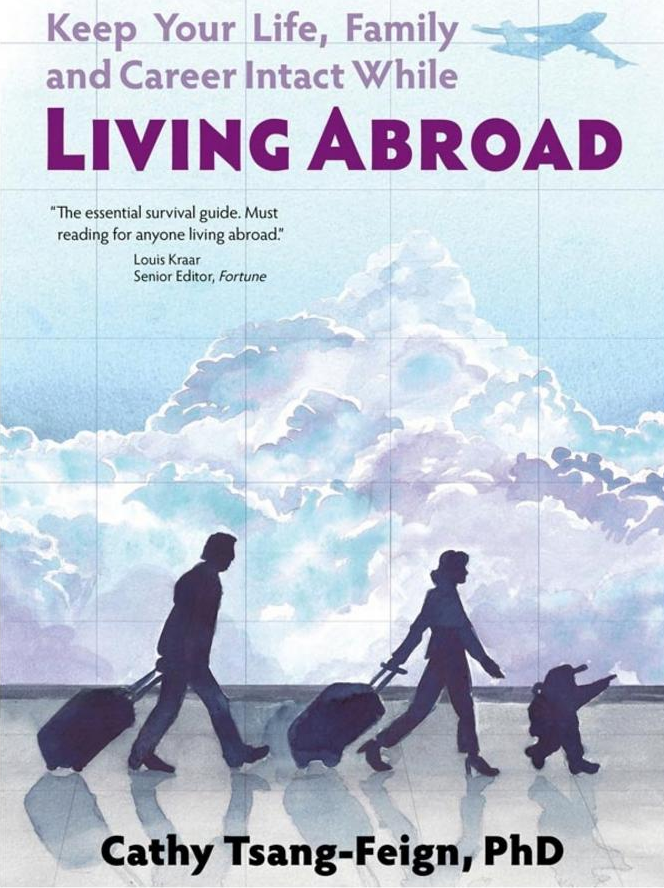
 Who did you write the book for?
Who did you write the book for?

